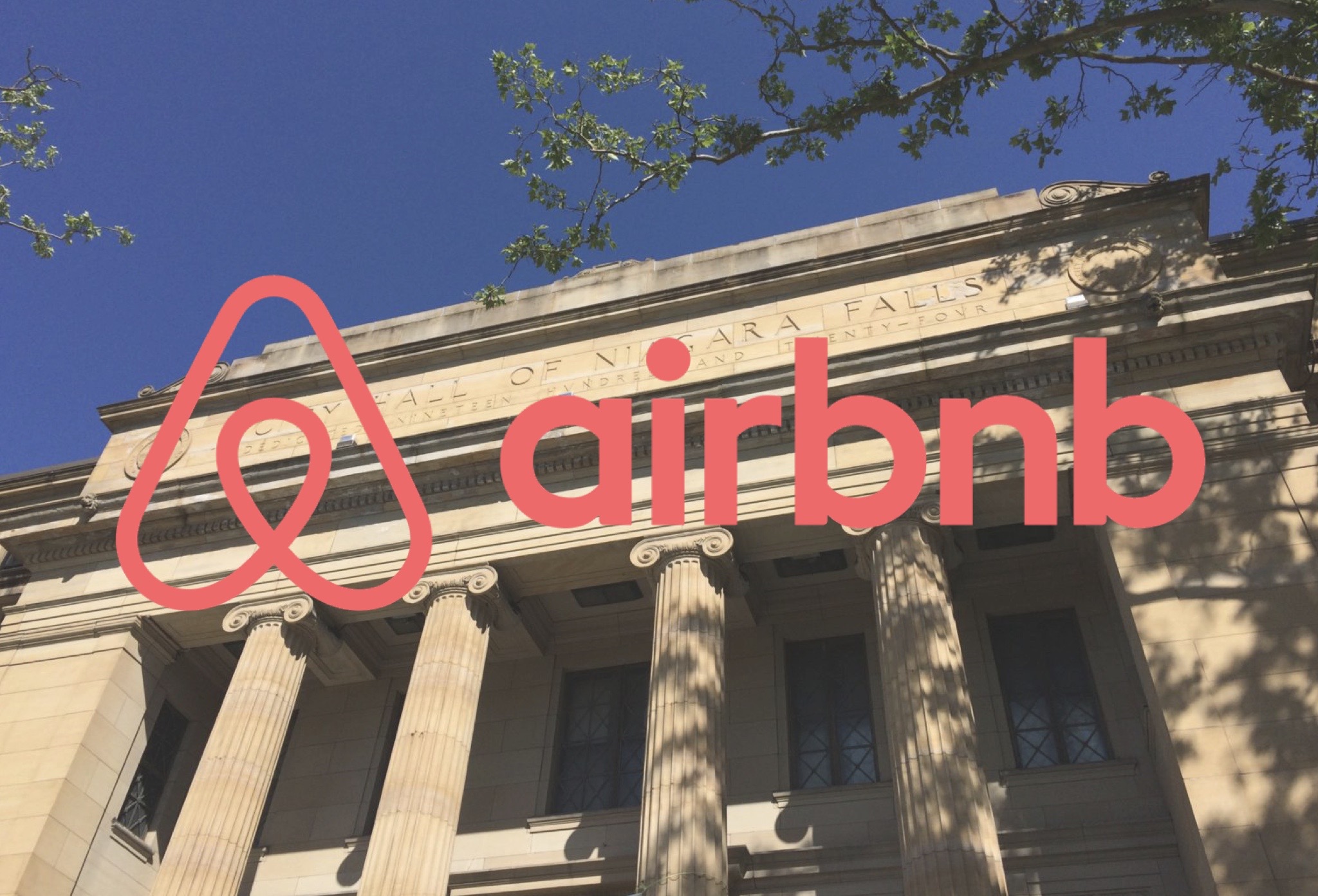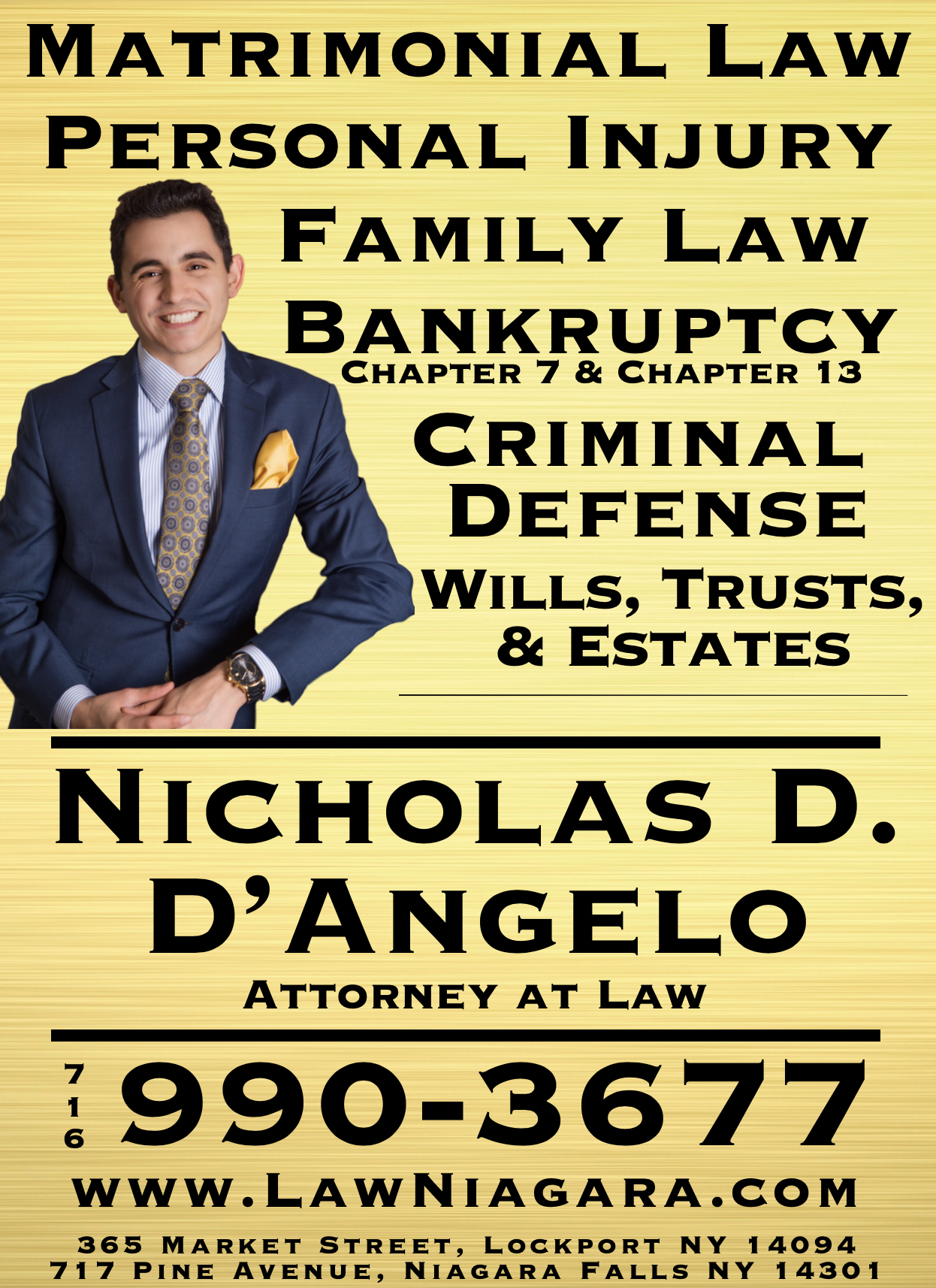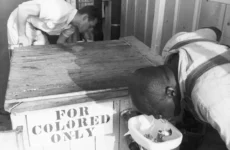Please click the link below to subscribe to a FREE PDF version of each print edition of the Niagara Reporter
http://eepurl.com/dnsYM9

By: Staff Reporter
What started with a moratorium on short-term rentals [AKA AirBNB style rentals of homes] in Niagara Falls earlier this year has turned into a comprehensive proposal by the Restaino administration.
A proposal was released this past week by the administration that would provide for structure in an area that was previously unregulated.
Specifically, the proposal would (i) limit short-term tourist rentals to the downtown area, (ii) requiring all owners to join Airbnb and pay taxes, and (iii) make owners legally responsible for any potential disorderly conduct by its renters.
This proposed ordinance would require landlords to pay the same occupancy tax (a/k/a ‘Bed Tax’) as hotel and motels throughout the City of Niagara Falls. The administration says that this tax, along with sales tax on the rental price, would be collected by Airbnb.
Mayor Robert M. Restaino spoke with the Niagara Reporter shortly after the proposal was released.
“The proposal geographically centers the industry in an area that could use investment, provides an easier area for permitted use for enforcement, and avoids proliferation throughout the city resulting in some neighborhoods losing their quiet character,” said Mayor Restaino.
One question that has persisted since the moratorium was put in place earlier this year has been enforcement.
“Enforcement is always the issue,” said Mayor Restaino. “This is just another reason to limit location because our code enforcement department is thin and stretched out as it is. The proposal also provides for an appeal process if an owner believes they have been incorrectly cited.”
There are multiple steps that this proposal must survive before it is enacted into law.
The first step, which has already been completed, was to go before the Niagara County Planning Board on Monday, July 20th, 2020. After a lengthy meeting, the County Planning Board advised against the ordinance.
The second step is clearing the Planning Board which meets on Wednesday, July 20th, 2020. As of the date of this publication, it is fully expected to pass.
The third step is a public hearing where residents of Niagara Falls will voice their opinions and concerns to the City Council. The fourth and final step is a vote by the Council.
The City Council is set to meet on July 29th, 2020, but there is skepticism that the ordinance will go to a vote at that time.
It is more likely a public hearing and vote on the ordinance will take place at the Council’s first meeting back from their August recess on September 2nd, 2020.
Councilman Ken Tompkins, who was the City Council representative on a committee to formulate a short-term rental proposal, is not yet fully on board.
“As of right now I like it better than the existing one,” said Tompkins, “but I have some questions. My number one issue is enforcement. I do not see where and what the penalties are for the bad players. I sent an email to the mayor and the council asking about five or six questions and I haven’t gotten any questions. Until I have answers, I cannot support it at this time.”
Speaking with the Buffalo News, Councilmember Andrew Touma said he believes the ordinance, “could make it safer for our guests. Some of these short-term rentals have opened up in areas of the city that might not be the safest. You can really keep an eye on it if it’s restricted and you keep it in the downtown core.”
Council Chairman Chris Voccio was hesitant to weigh in publicly prior hearing residents’ opinion on the issue.
“Short term rentals have become an important component of our local economy and they also have an impact on quality of life issues,” said Chairman Voccio, “so getting this ordinance right is important. I’m looking forward to hearing comments and recommendations from the planning board meeting, from the administration, from my colleagues on the Council, and from the general public. Whatever ends up becoming law, we need to make sure it has teeth and we can enforce it effectively.”
One outstanding issue is what to do with existing rentals. Luckily, a memo from Niagara Falls Corporation Counsel, Christopher Mazur, Esq., stated that existing rentals can remain open regardless of location. According to Mazur, this would only change if the property is sold or the city license is not renewed. The full memo is posted on the City website.
The fee structure for rentals will be $250 per year for a single unit and $400 for a double unit. This rental fee structure will replace the prior permit system.
The Mazur memo says keeping rentals downtown, “will limit the spread [of short term rentals] into more remote parts of the city and hopefully create a ‘critical mass’ in the lodging and hospitality industry in our downtown tourist zone.”
Mayor Restaino, who is a licensed attorney, told the Buffalo News that he is not worried about any legal challenge to the ordinance.
“When people say things are illegal, I say, ‘Show me where it was declared illegal,’” said Restaino.
Not everyone is on board with the mayor’s proposal to limit the short term rentals to downtown.
One property owner in the Deveaux area of the Falls said he is approved for short term rentals and has earned decent money for it over the last few years.
“I don’t think it is fair that I can’t continue to earn money from this.” he said. “It is my property after all. Why should only downtown properties be able to make the money. My house is an excellent rental. No one has ever complained and being near the gorge, it provides renters with an excellent experience in a safe neighborhood.”





















